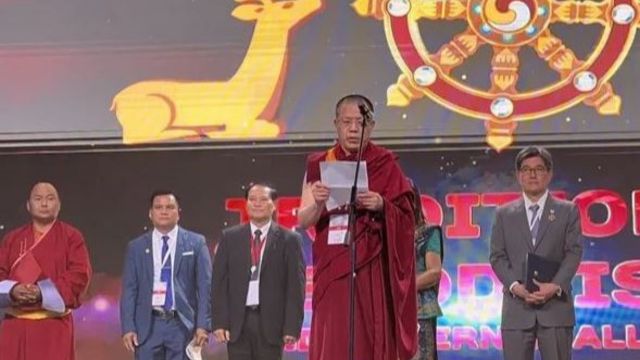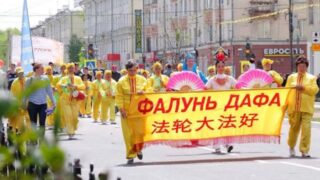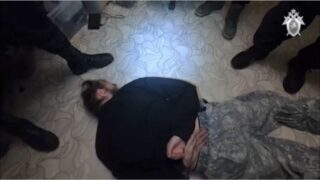Buddhist bureaucrats loyal to their governments attended an “international Buddhist forum” in Ulan-Ude, Buryatia. Putin himself sent a message.
by Massimo Introvigne


Russian and Chinese State-controlled Buddhist organizations both have a problem of credibility. As “Bitter Winter” reported last year, the then Supreme Lama of Kalmyk Buddhists, Telo Tulku Rinpoche (Erdne Ombadykow), became in October 2022 the first Russian high-profile religious leader to condemn the war of aggression against Ukraine. He even said that in his opinion “the Ukrainian side is right.” Obviously, he had to escape to Mongolia, where he catered to tens of thousands of Russian Buddhists who fled there to avoid conscription. In January 2023, Telo Tulku Rinpoche was declared a “foreign agent” in Russia and compelled to resign.
Telo Tulku Rinpoche had been the leader of Kalmyk Buddhists since 1992 and might well have been the most venerated figure in Russian Buddhism. His criticism of the Putin regime and exile deeply disturbed Buddhists in Russia.
At the same time, in China the government-controlled China Buddhist Association has never really recovered from the 2018 scandal, when its president Xuecheng, the abbot of Beijing Longquan Monastery, had to resign over allegation that he had sexually molested six nuns. Gyaincain Norbu, the false Panchen Lama installed by the Chinese after they kidnapped the real one and widely regarded as a CCP puppet, continues to serve as vice president of the association.
On the other hand, both Chinese and Russian official Buddhist bodies are active in international inter-Buddhist organizations and, as an authoritative report argued for China, send representatives in monk’s robes to tour the world, defend their government, and “allow the [Chinese Communist] Party to effortlessly associate politicians and elites in democratic countries with figures whose public views they would normally find politically toxic.”


It comes as no surprise that Chinese and Russian official Buddhist bodies cooperate in this effort. From August 15 to 20, 2023, Hu Xuefeng, vice president of the Buddhist Association of China, led a six-member Chinese Buddhist delegation to Ulan-Ude, in the Republic of Buryatia, which is part of the Russian Federation, to attend an international Buddhist forum.
Vladimir Putin himself sent a message who was read in the Forum. The President of the Republic of Buryatia received the participants, and the President of Kalmykia also sent a message. Vice President Hu and Russian Buddhist leaders hailed their “modernized” version of Buddhism and expressed their loyalty to their respective governments. Russian participants blessed the “patriotic” effort in Ukraine, where many Russian Buddhists fight and die, as a fight against Western aggression and Nazism, and the Chinese delegation explained that religious liberty is flourishing in China.


Neither of the two delegations received the other’s claims with laugh, which should already be counted as an achievement. However, the infiltration of Chinese and Russian state Buddhism into international Buddhist organizations is no laughing matter. It should be prevented and contrasted.









